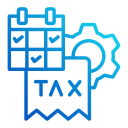Maximizing Deductions for Professionals: Turn Everyday Costs into Strategic Savings
Ordinary and necessary, explained with real-world examples
An expense is deductible when it’s common in your field and helpful for your work. A therapist’s encrypted telehealth app, an architect’s drafting software, or a consultant’s research database all fit. Define the purpose in plain language so it’s obvious why the cost supports your professional activities.
Business versus personal: drawing a bright, defensible line
Maximizing deductions for professionals starts with separation. Use a dedicated business account, tag transactions promptly, and add short notes to receipts. Calendar entries that match meetings, projects, or travel reinforce intent. When in doubt, split mixed-use expenses and document the calculation you used.
Anecdote: the notebook that saved Jonah $1,200
Jonah, a freelance videographer, wrote a one-sentence purpose on every receipt and kept a pocket notebook for set locations and dates. When he summarized the notes quarterly, he uncovered missed equipment rentals and prop costs. That tiny habit transformed scattered slips into deductions he could confidently defend.

This is the heading
Lorem ipsum dolor sit amet, consectetur adipiscing elit. Ut elit tellus, luctus nec ullamcorper mattis, pulvinar dapibus leo.

This is the heading
Lorem ipsum dolor sit amet, consectetur adipiscing elit. Ut elit tellus, luctus nec ullamcorper mattis, pulvinar dapibus leo.
Travel that truly counts toward your professional goals
Make the business purpose unmistakable: conferences, client site visits, and project scoping trips generally qualify. Save itineraries, agendas, and confirmations that tie each day to a professional objective. If you add personal days, document how you apportioned costs, focusing deductions on the business-centered portion of the trip.
Meals you can stand behind, from coffee catch-ups to working lunches
For professionals, meals related to business discussions are typically partially deductible when you document who, what, and why. Add quick notes: “Strategy meeting with Aisha regarding Q3 proposal.” Keep receipts with dates and locations, and avoid folding entertainment into meal claims. Clear context makes ordinary costs defensible.
Receipts, logs, and the two-minute habit that preserves proof
Right after each meeting, snap a photo of the receipt and add a short note in your calendar. Once a week, match those notes to transactions in your bookkeeping app. This tiny two-minute habit prevents missing details and turns every legitimate expense into a clean, ready-to-claim deduction.
Vehicles and Mileage: Drive Your Strategy, Not Just Your Car
Standard mileage versus actual costs: picking the winning method
Compare the standard mileage method with actual costs like fuel, insurance, maintenance, and lease or depreciation. Track business miles with a log that includes purpose and destination. Run both approaches for a sample month and extrapolate. Choose the method that best reflects your usage and maximizes legitimate savings.

Professional Growth: Education, Licenses, and Subscriptions That Pay Back

Focus on training that maintains or enhances your existing skills rather than pivoting to a new, unrelated trade. Save syllabi, receipts, and completion proof. Add a short note on how the course supports current client work or deliverables. The clearer the connection, the stronger the deduction becomes.
Retirement and Health Strategies: Above-the-Line Advantages
Evaluate contribution options that align with your income volatility and deadlines. Create a contribution schedule that mirrors your revenue cycles, then automate transfers where possible. Keep confirmations with plan details and note which tax year each contribution applies to. Small, steady moves can meaningfully reduce your tax burden.
Retirement and Health Strategies: Above-the-Line Advantages
Health Savings Accounts, when eligible, can provide deductions for professionals while building a medical cushion. Track qualifying premiums and contributions carefully. Consider paying medical expenses from non-HSA funds so the account can grow. Pair these strategies with robust recordkeeping to sustain the deduction’s credibility.




Risk Management: Audit-Ready Without the Anxiety
Review your categories annually so similar expenses always land in the same buckets. Keep short purpose notes and supporting files in one place. When patterns match the reality of your professional life, your books naturally tell a coherent story that supports maximizing deductions for professionals.
Risk Management: Audit-Ready Without the Anxiety
Block twenty minutes each week to import transactions, tag receipts, and reconcile mileage or travel notes. This habit prevents quarter-end headaches and uncovered errors. Professionals who stay current capture more valid deductions because they remember details while they are still fresh and easy to document.
